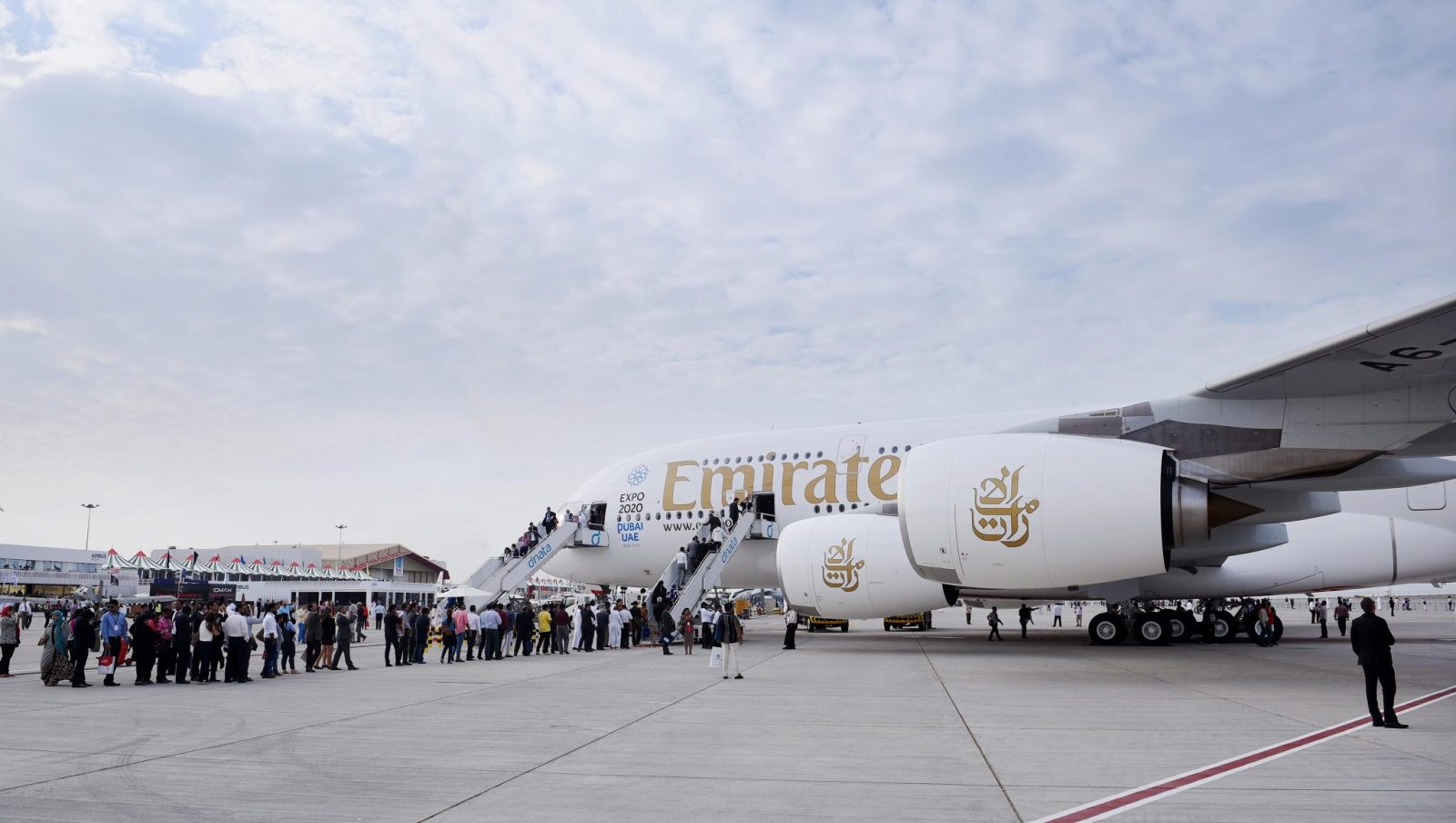
Yesterday, Emirates announced it would be making some fairly major changes to its U.S. services with a slew of cuts across the route network. The Dubai-based airline currently serves 12 cities in the United States. Its latest route from Athens-Newark only launched in March.
But plans have been published to trim back its schedule to five destinations starting in May. Here are the details:
- Fort Lauderdale will go from a daily flight to 5x weekly.
- Orlando is also going from a daily service to 5x weekly.
- Seattle, Boston and Los Angeles will be moving from twice daily services to single daily flights.
Emirates also serves the following U.S destinations which will not be affected: Newark via Athens, Chicago, San Francisco, Dallas, Houston, Washington and New York JFK (including a trans-Atlantic route between JFK and Milan Malpensa).
Referencing the recent Electronics Ban and proposed ‘Muslim Ban’ a spokesperson for the airline said: “Over the past three months, we have seen a significant deterioration in the booking profiles on all our U.S. routes, across travel segments,”
The statement continued: “Emirates has therefore responded as any profit-oriented enterprise would and we will redeploy capacity to serve demand on other routes on our global network.”
U.S. Lobby Group Responds
However, the decision to reduce services has surprisingly drawn ire from The Partnership for Open & Fair Skies – A U.S. lobby group that campaigns against Emirates, Etihad and Qatar Airways (The ME3).
Jill Zuckman, the chief spokesperson for the group, said late last night: “The fact is, market demand has never played a role when the Gulf carriers decide where to fly. It is well known that the Gulf carriers, including Emirates, lose money on most of their flights to the United States and are propped up by billions of dollars in government cash.”
In a strongly worded and highly emotive statement, Zuckman continued: “Their business model is based on growing their networks without regard to profitability in order to serve their governments’ goals to dominate global aviation. A perfect example is Emirates’ most recent route between Athens, Greece and Newark, N.J., a money-losing flight that is only possible because of government subsidies. That Emirates would refer to itself as “profit oriented” is simply laughable.”
The Partnership for Open & Fair Skies was set up by the Big Three U.S. carriers – American Airlines, Delta Air Lines and United Airlines – against what they saw as the unfair rise of the ME3 into the United States.
Gulf Airlines Increase Flights to U.S. by Nearly 50% Since 2015
It recently accused the ME3 of increasing the number of flights to the U.S. by nearly 50% since January 2015. They claim Emirates, Etihad and Qatar Airways have only been able to do this because the governments of the UAE and Qatar have pumped $50 billion USD into their state airlines. This, they argue, violates the Open Skies agreements that allow the ME3 to fly to the U.S.
The group quotes Darin Lee, an aviation economist at Compass Lexecon to underline their point: “With their massive subsidies, Gulf carriers are able to make decisions that no rational business would ever consider, let alone do,”
“No company could tolerate such financial losses except for those receiving a never-ending stream of state subsidies. If all airlines are to compete fairly, we need to stop the massive flow of government cash that has completely skewed the playing field.”
The Likely effect on Cabin Crew
This isn’t the first time that Emirates has reduced its services to the United States. Both Dallas-Fort Worth and Houston have been downgraded from Airbus A380 superjumbo’s to Boeing 777 aircraft in the last year. An Emirates A380 can accommodate approximately 489 passengers versus 354 on a three-class 777.
For Cabin Crew the new schedule brings a mixed bag of reactions. The good news – On services that are going to 5-times weekly, some crew will benefit from extra long layovers. But the good news will be tempered with the reality that Cabin Crew recruitment will be reduced to reflect the needs of the airline.
For its part, Etihad Airways has said that it hasn’t seen demand for its U.S. services slow down.
”Demand continues to remain strong on all 45 weekly services between Abu Dhabi and its six US gateways of New York, Washington, Chicago, San Francisco, Los Angeles and Dallas,” a spokesman said in a statement on Wednesday.
The airline will go ahead with an upgrade of its second daily flight from Abu Dhabi to New York City to an Airbus A380 aircraft. The spokesman said of the move: “This demonstrates our ongoing commitment to the US market regardless of recent developments.”
Mateusz Maszczynski honed his skills as an international flight attendant at the most prominent airline in the Middle East and has been flying ever since... most recently for a well known European airline. Matt is passionate about the aviation industry and has become an expert in passenger experience and human-centric stories. Always keeping an ear close to the ground, Matt's industry insights, analysis and news coverage is frequently relied upon by some of the biggest names in journalism.







